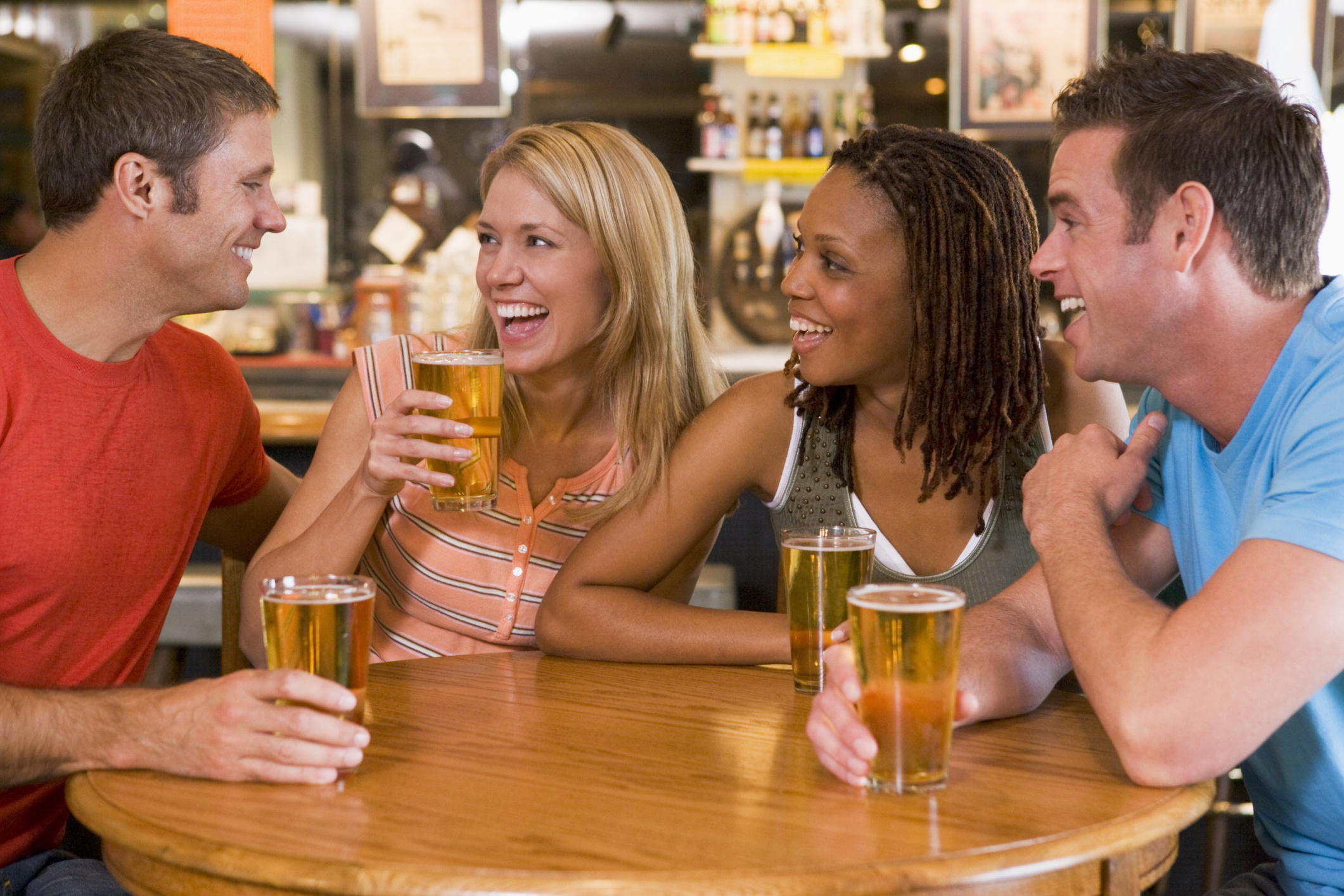It’s official: beer is our favourite drink. But is it any good for us? You betcha says Abi Jackson
Pop into any pub, anywhere in the UK, at any time (within reason!), and you can guarantee you’ll spot a fair few people happily supping on a cool pint.
If beer is your tipple of choice, you’re not alone.
A study has confirmed that it’s the nation’s favourite drink. Whether it’s stout, draft, ale, bitter or lager, for 55% of Brits, beer is our order of choice, according to a new survey by Guinness.
While we might plump for a pint for refreshment and flavour, did you know it’s quite good for you too? Well, a little bit, and only in moderation of course, but on this endless quest for wellness, every little helps, right?
WORKOUT WONDER
Forget knocking back a recovery drink after a strenuous workout; head to the bar instead. Over a series of months, scientists in Spain studied students running on a treadmill in the heat. Some were given just water to guzzle, while others were given two half pints of lager as well. The lager drinkers experienced “slightly better” rehydration effects than the students who only drank water. The researchers recommended moderate daily beer consumption (500ml for men, 250ml for women) as part of an athlete’s diet. Then again, if you look after yourself like an athlete, you can probably justify a guilt-free tipple every now and then.
HOPS TO IT
Hops is a core ingredient in many varieties of beer, and it’s linked to a host of health benefits, from improved sleep, to lowered cholesterol and reduced cancer risk.
Scientists in Germany have found that xanthohumol, found in hops, can block the excessive action of hormones testosterone and oestrogen, which play a part in the spread of prostate and breast cancer. But be warned: go overboard on the booze and all of the slumber-aiding qualities of hops will be outweighed by its other ingredients; a recipe for erratic sleep and a groggy head the next morning.
IRON BREW
Iron is essential for overall health, keeping energy levels up and enabling healthy blood function, but many of us are lacking in it. Luckily, it can be found in ample supply in certain dark varieties of beer. Apparently, the iron contents are important for the stability and quality of the brew, but they’re also downright good for us. OK, so a pint of the dark stuff is not going to make up for a lack of dark leafy greens in your diet, but it’s good to know your favourite tipple is doing some good!
HAIR OF THE DOG
Smooth, dark and delicious (for some), Guinness also contains properties that may benefit heart health. Back in 2003, scientists at the University of Wisconsin in the US carried out a study which involved giving beer to dogs with narrowed arteries. Guinness was found to bring about a reduction in blood clotting, similar to the affects of taking aspirin – which can be helpful in preventing heart attacks in people with heart disease – compared with the pooches that lapped up lager. It’s believed that the antioxidant compounds found in the popular Irish stout were the reason, though – unlike fruit and veg – aiming for a minimum five a day probably doesn’t apply here…
CHEERS!
A cold beer is always best enjoyed with good company, and that in itself is very good for you. Socialising is fun, lets you relax and let off steam, and these things are actually important to our health. A recent Scottish study found that visiting pubs improved men’s mental health, for these very reasons. Obviously, it’s a different kettle of fish if you have a problem with booze – and men tend to be at higher risk of alcohol-related diseases – but it goes to show, enjoying a (moderate) drink with mates really is good for us.
It’s always best to drink sensibly. For advice and info visit www.drinkaware.co.uk
